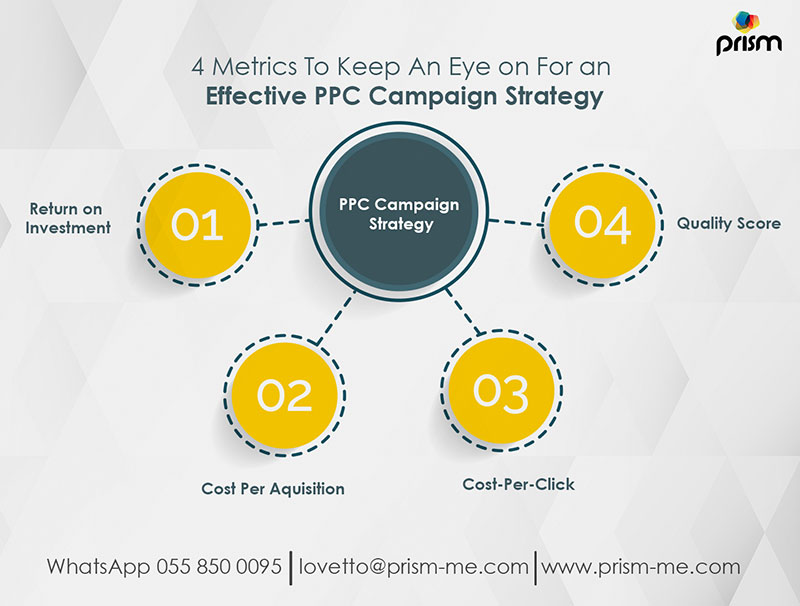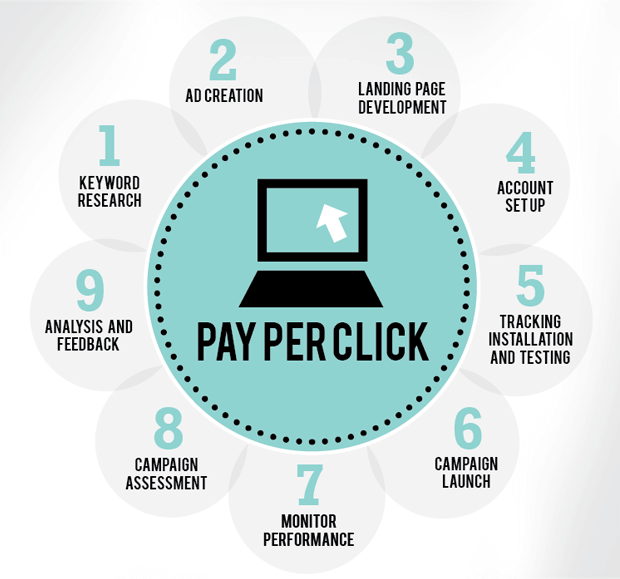What Drives PPC Success?
Uncover the secret formula behind PPC success and skyrocket your online marketing game to new heights with this post.
Table of Contents
Introduction to PPC
So, you’ve probably heard about online advertising and online marketing, right? Well, one of the key tools that businesses use to promote their products and services online is PPC. But what exactly is PPC, and why is it so important in the world of online marketing?
PPC stands for Pay-Per-Click, and it’s a popular form of online advertising where businesses pay a fee each time someone clicks on their ad. This means that you only pay when someone is interested enough to click on your ad and visit your website. Pretty cool, right?
Now, in the vast world of the internet, where millions of websites are vying for attention, PPC helps businesses stand out and reach their target audience more effectively. By using PPC, businesses can promote their products and services to the right people at the right time, increasing their chances of making a sale or gaining a new customer.
How PPC Campaigns Work
When you want to run a PPC campaign, the first step is to choose the right platform. There are various options like Google Ads, Bing Ads, and social media platforms where you can set up your ads.
Choosing Keywords and Audiences
Selecting the right keywords and targeting the correct audience is crucial for the success of your PPC campaign. Keywords are the words or phrases people use when searching online, and targeting the right audience ensures your ads are shown to the right people.
Setting a Budget
Setting a budget for your PPC campaign is important because it determines how much you are willing to pay for each click on your ad. The budget you set will affect the reach and performance of your ads.
Measuring PPC Success
In the world of online marketing, it’s crucial to be able to measure the success of your Pay-Per-Click (PPC) campaigns. By analyzing various metrics, you can determine what’s working well and where you may need to make adjustments to improve your results. Let’s dive into some of the key metrics used to measure PPC success.

Image courtesy of www.prism-me.com via Google Images
Understanding PPC Metrics
When it comes to evaluating the performance of your PPC campaigns, there are several important metrics to consider. One key metric is the click-through rate (CTR), which tells you the percentage of people who clicked on your ad after seeing it. A high CTR indicates that your ad is resonating with your target audience.
Another vital metric is the conversion rate, which measures the percentage of people who take a desired action after clicking on your ad, such as making a purchase or signing up for a newsletter. A high conversion rate indicates that your ad is compelling and persuasive.
Other important metrics to track include the cost per click (CPC), which shows you how much you’re paying for each click on your ad, and the return on investment (ROI), which measures the profitability of your PPC campaigns. By monitoring these metrics closely, you can gain valuable insights into the effectiveness of your advertising efforts.
SEO Ranking and PPC
While PPC and search engine optimization (SEO) are two distinct online marketing strategies, they are closely related. PPC can actually have a positive impact on your SEO ranking by driving more traffic to your website and increasing your online visibility.
When users click on your PPC ads and visit your website, it can signal to search engines that your site is relevant and authoritative. This can help improve your organic search rankings over time. Additionally, using PPC to target specific keywords can also help boost your SEO efforts, as it allows you to test the effectiveness of different keywords before committing to them in your SEO strategy.
Tips for Improving PPC Campaigns
Choosing the right keywords is crucial for the success of your PPC campaign. These are the words or phrases that potential customers are likely to use when searching for products or services like yours. By selecting relevant and specific keywords, you can reach the right audience and improve the performance of your ads.
Optimizing Landing Pages
Having a well-optimized landing page is essential for maximizing the effectiveness of your PPC campaign. A landing page is where your potential customers land after clicking on your ad, so it should be clear, relevant, and user-friendly. Make sure your landing page matches the ad’s messaging and provides a seamless user experience to increase conversion rates.
Continuous Testing and Adjustment
One of the keys to improving your PPC campaigns is to continuously test and adjust various elements. This could include testing different ad copy, images, or targeting options to see what works best. By analyzing the results of these tests and making adjustments accordingly, you can refine your campaigns and achieve better outcomes over time.
Common Mistakes to Avoid in PPC
When running a PPC campaign, it’s important to steer clear of certain common mistakes that can hinder your success. By being mindful of these pitfalls, you can improve the effectiveness of your online marketing efforts. Let’s explore some of the typical errors people make and how to avoid them.

Image courtesy of www.highervisibility.com via Google Images
Ignoring Target Audience
One of the biggest mistakes you can make in PPC is not focusing on your target audience. Your ads should be tailored to appeal to the specific demographic you are trying to reach. Understanding your audience’s needs and preferences is crucial for crafting ads that resonate with them. By neglecting to target the right audience, you may end up wasting your budget on clicks that are unlikely to convert into leads or sales.
| Factor | Description | Importance |
|---|---|---|
| Keyword Relevance | Choosing relevant keywords for your ads to target the right audience | High |
| Ad Copy Quality | Creating compelling ad copy that attracts clicks and conveys value | High |
| Landing Page Experience | Ensuring that your landing page is relevant and provides a good user experience | High |
| Bid Strategy | Having a well-defined bidding strategy to optimize ad performance | Medium |
| Ad Extensions | Utilizing ad extensions to provide additional information and improve CTR | Medium |
| Quality Score | Improving quality score by focusing on relevance, CTR, and landing page experience | High |
Forgetting Mobile Users
In today’s digital landscape, where most people rely on their smartphones for browsing the internet, it’s essential to optimize your PPC campaigns for mobile users. Ignoring mobile users can result in missed opportunities for engagement and conversions. Make sure your ads are mobile-friendly and that your landing pages are responsive to different screen sizes. By catering to mobile users, you can maximize the impact of your PPC efforts and reach a wider audience.
Conclusion: The Keys to PPC Success
In conclusion, understanding the keys to PPC success is crucial for running a successful online marketing campaign. By following the right strategies and avoiding common mistakes, you can maximize the effectiveness of your PPC efforts. Here are the key elements that contribute most to a successful PPC campaign:
The Right Keywords and Audience
Choosing the right keywords and targeting the correct audience is essential for the success of your PPC campaign. By conducting thorough keyword research and understanding your target audience, you can ensure that your ads reach the right people at the right time.
Optimized Landing Pages
Having well-designed and optimized landing pages is another key factor in PPC success. A clear and compelling landing page can significantly improve your chances of converting clicks into valuable leads or sales. Make sure your landing pages are relevant to your ad content and provide a seamless user experience.
Continuous Testing and Adjustment
Continuous testing and making adjustments based on the performance of your campaigns are crucial for optimizing your PPC efforts. By testing different elements such as ad copy, visuals, and targeting options, you can identify what works best for your audience and improve your overall campaign performance.
By focusing on these key elements and avoiding common mistakes, you can drive PPC success and achieve your online marketing goals effectively. Remember, PPC is a dynamic and ever-evolving field, so staying informed about the latest trends and strategies is also essential for long-term success.
FAQs about PPC
As an 11-year-old curious about online marketing, you might have some questions about PPC. Let’s dive into some common queries you might have:
How do I run a PPC campaign?
To run a PPC campaign, you first need to choose a platform like Google Ads or social media platforms. Then, you create an ad, choose keywords, set a budget, and launch your campaign. It’s like setting up a lemonade stand online but with ads!
How does PPC help improve SEO ranking?
PPC and SEO are like two peas in a pod. While PPC focuses on paid ads to drive traffic to your website, SEO works on optimizing your website to appear higher in search results organically. By running successful PPC campaigns, you can increase website traffic and visibility, which can positively impact your SEO ranking over time.
Can I run a PPC campaign without spending a lot of money?
Absolutely! You can start small with a modest budget and gradually increase it as you see results. It’s all about testing, learning, and adjusting your strategy to get the best results, even with a limited budget. Just like trying different flavors of ice cream to find your favorite!
Guide and Support to Your Success
Hopefully, these answers have cleared up some of your questions about PPC and how it can drive online success. Keep exploring and learning about digital marketing to become an expert in no time!






